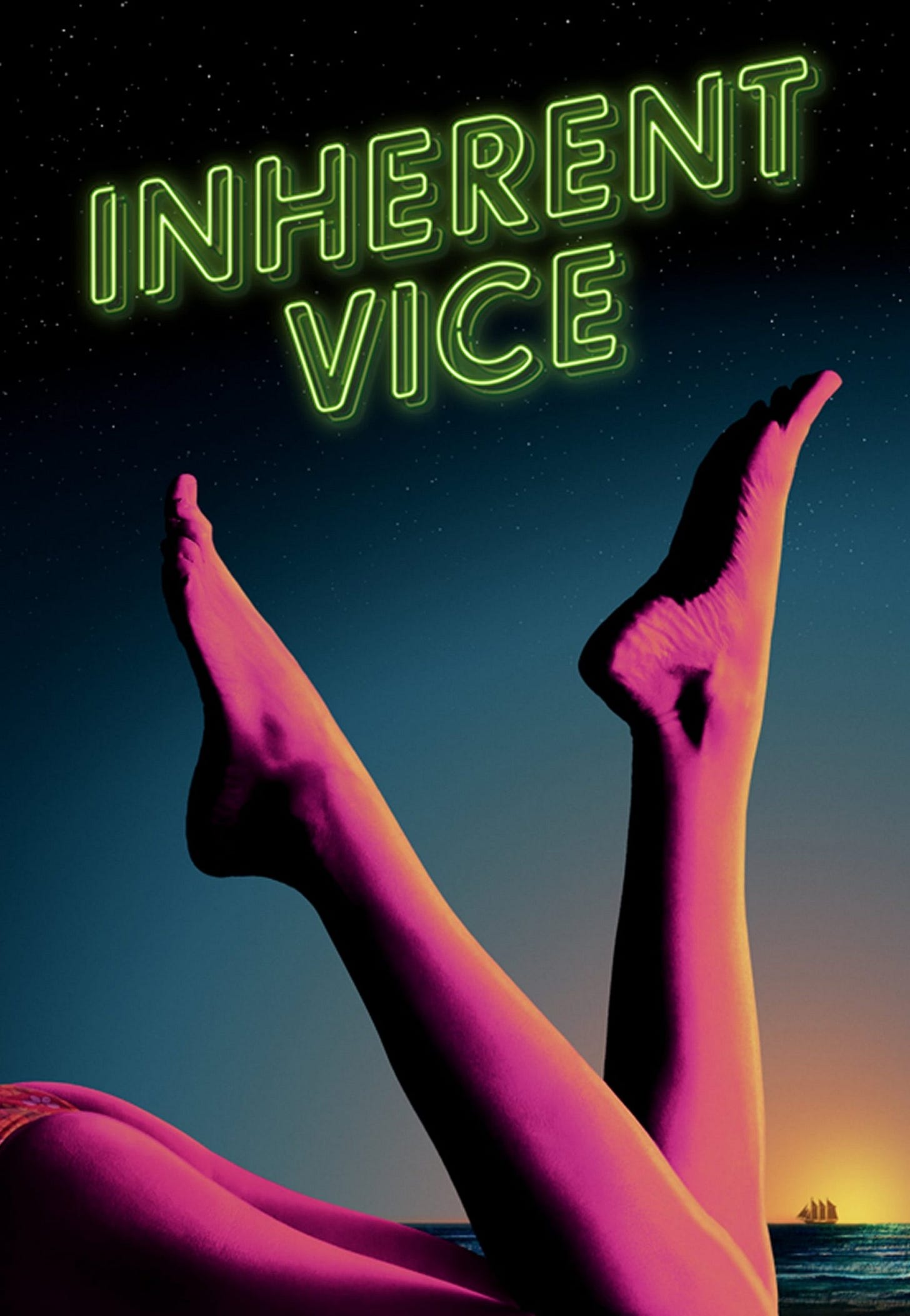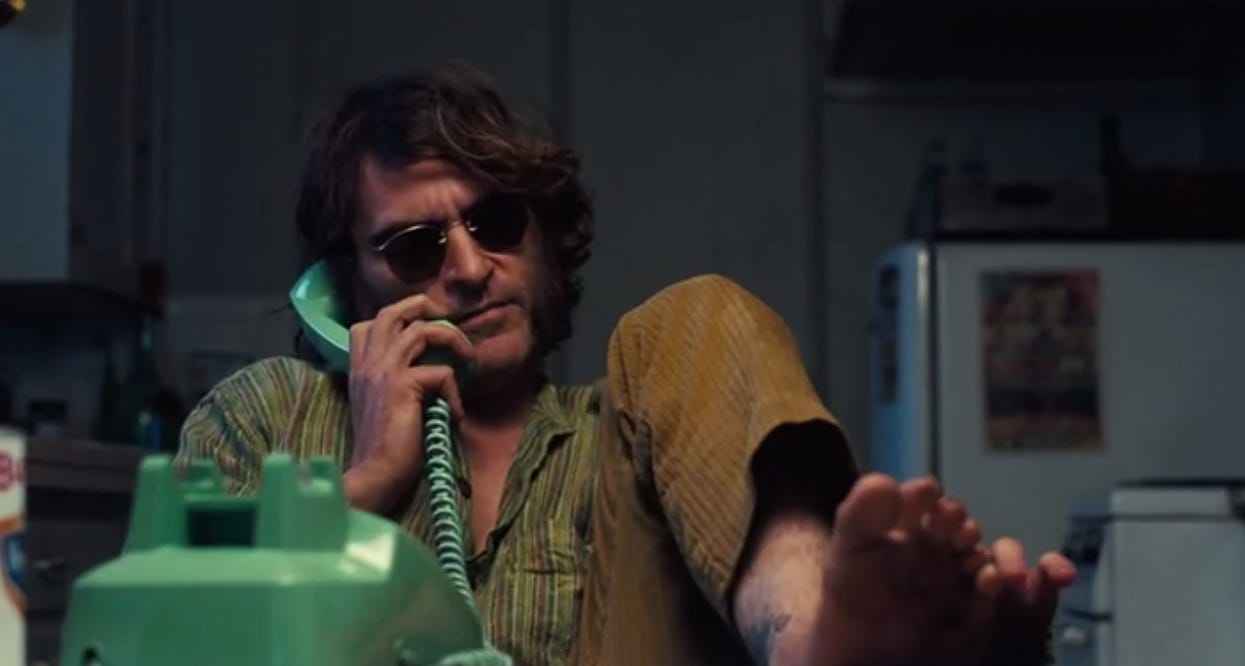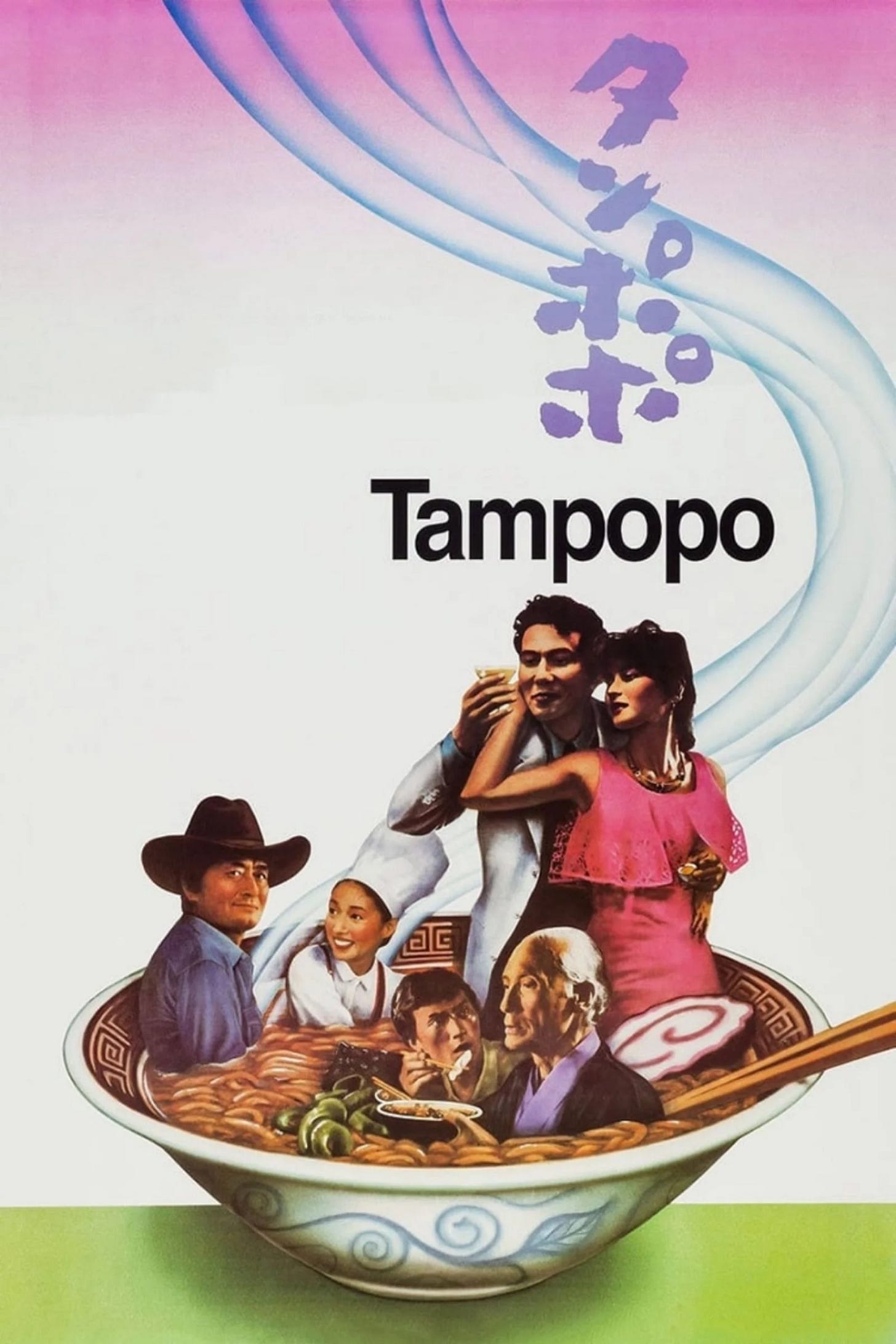Directed by Paul Thomas Anderson
USA, 2014
This week ReidsonFilm sat down with Paul Thomas Anderson’s Inherent Vice, a film that boldly takes on the challenge of adapting the Thomas Pynchon’s 2009 novel of the same name.
Some of us were already familiar with Pynchon’s books – as I’m sure many of our readers are – but for the uninitiated: Thomas Pynchon is known for his sprawling postmodern style, his novels often involving drug-induced escapades where the lines between reality and conspiracy quickly blur, and more often than not the Nazis show up at some point. The intricate plots and mixing of high- and low-brow style make Pynchon’s work chaotic, thrilling and at times obtuse. As you may already be speculating, this makes for a particularly difficult challenge when adapting his works for the screen:
That question, ‘How do I do this? This is so fucking hard,’ that fear is probably an addictive thing. ‘Now I want to do it, now I have to do it,’ you think. That’s kind of ego and fuel – Paul Thomas Anderson on adapting Pynchon.
The film is mostly faithful to the source material. It follows the life of Larry “Doc” Sportello, a stoner private investigator played by Joaquin Phoenix, whose ex-lover sends him on a quest to uncover the truth surrounding the alleged kidnapping of a property developer in suburban Los Angeles. The plot becomes increasingly incoherent as layers of conspiracy and betrayal are unearthed involving the Aryan Brotherhood, mysterious government agencies, and a Chinese heroin cartel. As Sportello is rarely seen without a joint in his hand – or later in the film, something considerably more potent – it is difficult to tell how much of what we are seeing is real, or can be trusted at all. Here Anderson does a good job of capturing the essence of a Pynchon novel: frantic, paranoid, meandering and yet somehow still gripping.
Still, ReidsonFilm found itself split over just how much chaos was too much. For those of us familiar with earlier satirical neo-noirs like The Long Goodbye (1970). Inherent Vice, with a runtime of almost two and a half hours, started to drag, retreading old ground without offering anything new.
There just wasn’t enough there to keep me engaged. I did start to nod off toward the end, and that was without resorting to a bong. Perhaps I should have - S
There were echoes of other genres too, the unreliable stoner/narrator undoubtedly calls to mind ‘the Dude’ from the The Big Lebowski. Anderson himself describes the source novel as ‘like a Cheech & Chong movie’. But a key point of agreement for ReidsonFilm was that too often the comedic moments missed the mark. Anderson is said to have tried to cram as many jokes onto the screen as Mr. Pynchon squeezed onto the page but – without having read this particular novel – it feels like perhaps this approach is better suited to text than screen. Coupled with the incoherence of the plot, jokes that do fall flat make the viewing experience even more alienating and the result feels as though we are being yanked between comedy sketches, rather than following a cohesive story.
Some of these sketches do show promise, there is a blink-and-you’ll-miss-it cameo from Michael K Williams who arrives in Sportello’s office to offer up a key plot point, but he is barely heard from again. Benecio Del Toro, Reece Witherspoon and Owen Wilson also provide great performances but suffer from a disappointing lack of screentime. Perhaps the standout performance comes from Josh Brolin, as Lieutenant ‘Bigfoot’ Bjornsen – Doc’s nemesis turned sidekick. Brolin’s character acting excels here, and this brash highly-strung policeman plays the perfect comedic counterpoint to the shaggy protagonist, at once both embodying and caricaturing the two sides of the American culture-clashes that defined the 60s and 70s.
Amidst all the noise and haze, there certainly is a compelling central narrative to Inherent Vice; the hippie detective in a world that has left him behind, trying his best to do right. In this way it recalls Red Dead Redemption, the videogame saga that depicts outlaws in a world that is rapidly modernising, the establishment quickly closing in on them. Anderson’s film shares that wistful tone, but adds a biting satire of the state’s response to rebellion:
All this strange alternate cop history and cop politics—cop dynasties, cop heroes and evildoers, saintly cops and psycho cops, cops too stupid to live and cops too smart for their own good—insulated by secret loyalties and codes of silence from the world they’d all been given to control, or, as they liked to put it, protect and serve – Thomas Pynchon, Inherent Vice
Perhaps wisely, it is in these incisive moments that Anderson leans heavily on excerpts of text lifted directly from the novel and delivered by the film’s narrator, another peripheral character, Sortilège, played by Joanna Newsom: I genuinely can’t remember what her actual role was in the film, it was that insignificant. To some, these excerpts could be considered a cop-out, Anderson simply copy-pasting the Pynchonian prose rather than rendering it cinematically. Equally it could be seen as his deference to an inimitable literary style, but then is this not simply an admission of defeat in the adaptation process?
Anderson certainly draws on his own signature style for the filmmaking itself. The construction of the film was great, as you’d expect from Anderson and his cinematographer Robert Elswit. We get plenty of hazy LA sunshine, excellent shot composition throughout and plenty of imaginative flourishes as the camera moves between suburban apartment complexes, desert brothels and police departments. The film oozes with the confidence of a Hollywood director at the top of his game, but with the dud jokes and ambling pace of Inherent Vice, at times this confidence felt unwarranted.
Jonny Greenwood also offers up his elegant, yet febrile, string sections to the film’s score, punctuating many of its climactic moments. Blended though, with vintage tracks from Sam Cooke and Neil Young, this score does feel less impactful than his work on Anderson’s other films. The craft at work in Inherent Vice is certainly palpable, for better and at times for worse, but ultimately this does make it a film worth viewing, and you may find that enduring its flaws is worth it for the brief flashes of Pynchonian madness Anderson is able to muster.
The filmmaking in general was top notch as always with PTA…the man knows how to block a scene, also I thought the soundtrack went hard to be honest - N
Adaptation is a familiar cinematic tightrope: at their best, adaptations are able to capture the spirit and style of the original material, challenge, or better still elevate it. Akira Kurosawa is perhaps the prime exemplar. When discussing Kurosawa’s many great reimaginings of Shakespeare, Slovenian memelord and philosophical provocateur Slavoj Zizek remarked:
When we come later than the original work of art, this is a privilege for us. We can understand Shakespeare today better than Shakespeare understood himself.
While Shakespeare is arguably an easier writer to adapt than Thomas Pynchon, with Inherent Vice it’s fair to say that Anderson does not succeed in understanding or exploring Pynchon any better than Pynchon himself. Our sense is that reading the novel could help make sense of this film, but it seems unlikely that the film would enhance our appreciation of the novel.
Anderson’s love for the material is evident, but the film’s overtly comedic style misfired too often, and the result is a film that unfortunately falls short of what we’ve come to expect from the director who brought us There Will Be Blood and Phantom Thread. With another Pynchon adaptation arriving from him later in the year, we can only hope that he learns from the stumbling blocks of Inherent Vice, and finds a new way into Pynchon’s work – one that’s still reverential, but also refreshing, insightful and unique.
Say what you like about Inherent Vice, but it’s certainly given me a hankering for more Pynchon, in any medium I can get my hands on – C
Reids’ Results (out of 100)
C - 75
T - 72
N - 82
S - 67
Thank you for reading Reids on Film. If you enjoyed our review please share with a friend and do leave a comment.
Coming next… Tampopo(1985)











I really like this film, too - probably because I’ve been a Pynchon fan since the early 90s. Great, thoughtful review as always - and now I’ve got another film in the queue!
Love this film!!